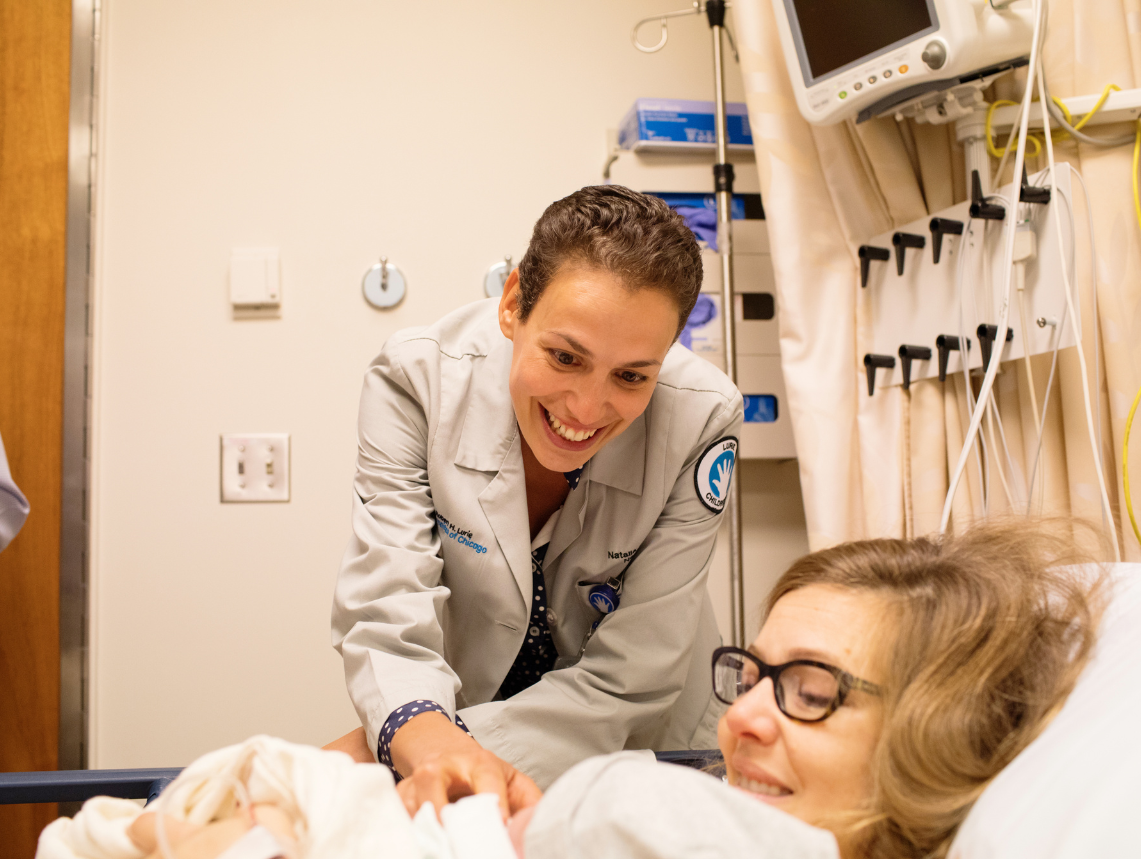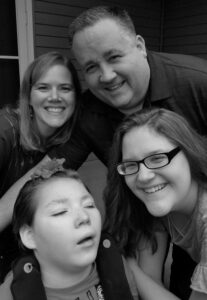Orienting to Hospital
Hospitals are good places to be, as your child will be safe there and cared for by experts. Hospitals are also challenging.
Unless you have spent time in the hospital with another loved one, this environment will likely feel like a strange world to you. Everyone is moving quickly. The doctors rotate. Things change daily, weekly, monthly. And no matter how warm and comfortable the hospital staff tries to make the space, you and your child are not home. Of all the places where you will ever be, this may be the one where you will feel the most vulnerable.

Your Team:
Professionals who have completed advanced training in a specific area of medicine.
A specialist whose aim is to improve the quality of life of their patients over the course of their illness regardless of stage, by relieving pain and other symptoms of that illness.
A person trained to care for the sick, especially in a hospital.
A trained professional who works with people, groups and communities to help them better their lives.
A pediatric health care professional who works with children and families to help them cope with illness, injury and other medical experiences.
The medical team conducts “rounds”—daily visits to check in. Specialists may join these conversations or visit separately. A palliative care clinician can facilitate discussions with the care team and support you as you get oriented to the hospital “system.” Nurses will support you and your child throughout the day. A social worker helps with logistics, like insurance, getting equipment, and placements. A child-life specialist can support your child, if age-appropriate, with activities.
To be an effective advocate in the hospital you will need to learn the routines and schedules. You will need to voice any questions you have, though you may not know whom to ask about what. It is very appropriate to ask; after all, you know your child best and are there as their voice and protector. It is also appropriate and helpful to share your concerns and feelings, including those of confusion or fear. Over time you may develop close relationships with certain members of the care team, perhaps nurses and nurse practitioners who usually do not rotate. They and everyone else wants to help and will try to direct you if they can’t address your concerns.
You will find yourself experiencing a lot of overlap which feels inefficient and brings feelings of frustration. Sometimes you will hear similar questions from different people, or even from the same people. It can be exhausting and annoying to repeat yourself and to have to be “on” for so many people. You may have questions about how (or if) their plans fit together, or about how to decide between different options they offer. You can ask the specialists directly, or someone else on the team, such as a palliative specialist, to assist you in putting the pieces together.
The section on Advocating and the CPN guide “A Framework for Sharing Decision-Making with Your Child’s Clinicians” are helpful resources for families and clinicians working together.
Focusing on your child is a natural impulse, especially in the hospital. No caregiver wants to leave their child alone in a hospital room, but taking care of yourself will help you take the best possible care of your child. Ask for help in making a schedule for yourself and family members who may visit. You will want to know when clinicians will be visiting (“Rounds”) so that you can be at the bedside as your schedule allows. You will also want to know if and when others, like family members, are allowed to visit.
It goes without saying that you will need nourishment and sleep to be able to function well for your child and to communicate with the medical team. When you are first in the hospital, especially if there is a crisis, you will not want or be able to sleep. You will feel the need to be alert at all times. This is natural. But depriving yourself of food and sleep is not heroic. It does not help you be strong for your child or your family.
The CPN guide “Navigating the Hospital” includes information on hospital protocols and roles of the clinicians you may meet.
– Sandy, parent of Jack
Related Resources
-
 Getting out and walking was a saving grace.video
Getting out and walking was a saving grace.video -
 Navigating the Hospitalguide
Navigating the Hospitalguide -
 Special Days Are Hard In the HospitalBLOG
Special Days Are Hard In the HospitalBLOG -
 A PICU NP: Keeping "this family-at-home" central to tending to them in the hospital setting.video
A PICU NP: Keeping "this family-at-home" central to tending to them in the hospital setting.video -
 Cardiomyopathy: A mom on arriving on the cardiac floor and finding community.video
Cardiomyopathy: A mom on arriving on the cardiac floor and finding community.video -
 Parents get exhausted by the steady stream of specialists in the room.video
Parents get exhausted by the steady stream of specialists in the room.video